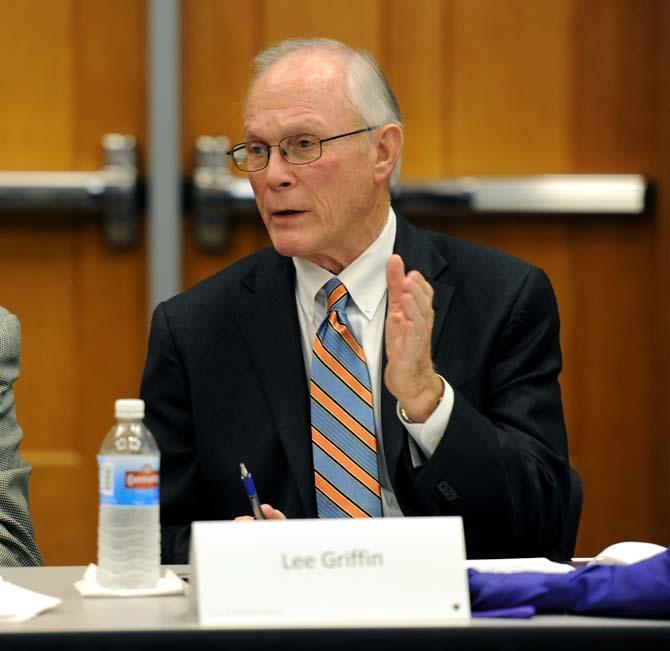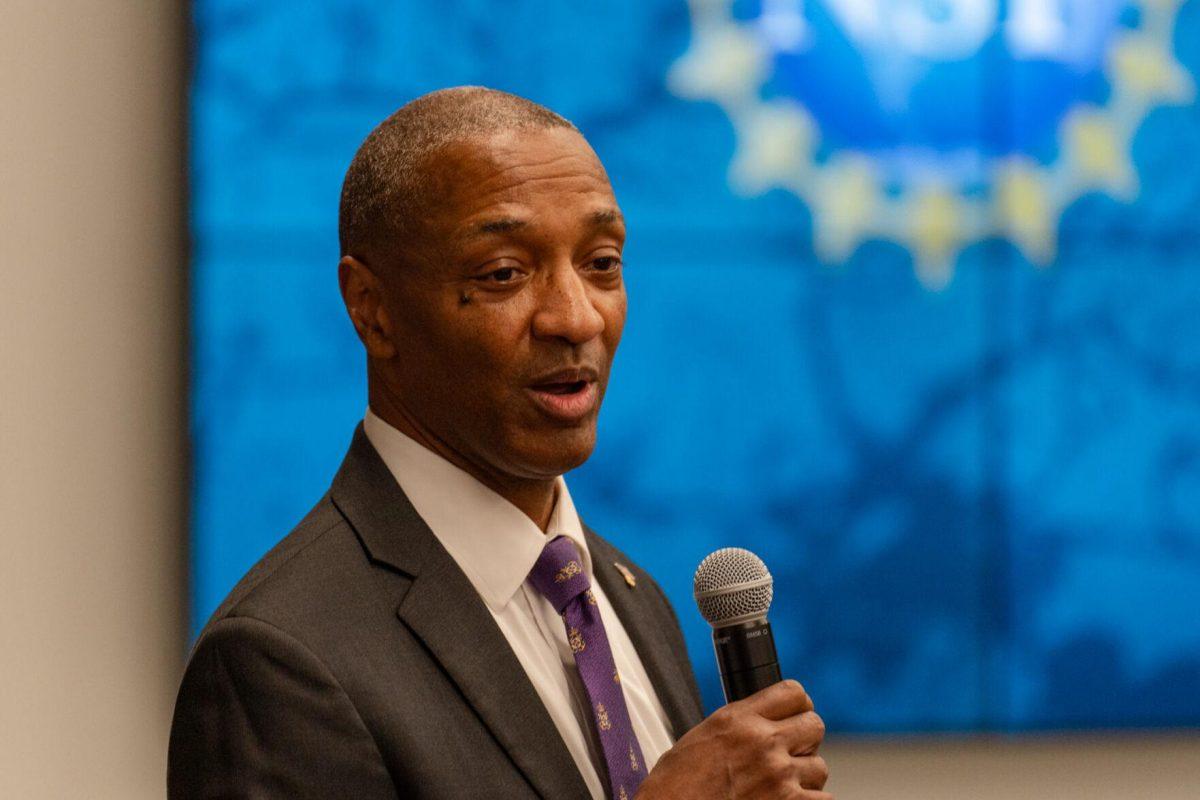The Transition Advisory Team discussed increasing research faculty funding, tenure evaluations and maintaining faculty retention on Monday afternoon.
To keep faculty at the University, TAT has recommended increasing faculty funding from $12 million to $55 million, adding graduate students to the research process and expanding undergraduate research to build a globally competitive research enterprise.
Lee Griffin, co-chair of the Finance and Revenue Subcommittee and president and CEO of the LSU Foundation said the way qualifications for tenure are measured for research faculty members need to be changed.
“Some professor’s research or a professor that’s doing a lot of good in terms of research and bringing things out of the lab whether it be commerce, or a license, a patent or a start up, that doesn’t really count toward tenure,” Griffin said.
Griffin said the qualifications for tenure need to be updated and especially include technological transfer and discoveries.
Jim Firnberg, chair of the Research and Discovery Subcommittee, addressed the declining rate of faculty retention and the need to stabilize the faculty.
“Our faculties have not received raises in four years or five. This will be the fifth if they don’t get a raise this year, and we’ve been picked off by the best universities in the country,” Firnberg said.
TAT also suggested the University needs to implement aggressive student recruiting processes on a state, national and international level.
Carroll Suggs, co-chair of the Student Experience Subcommittee, said a higher recruitment level would increase the graduate and undergraduate populations consistently, attract top students nationally and internationally, increase graduate rates and increase revenues from out of state tuition.
Suggs said the University has a recruiting team of “maybe” six while Alabama has a team of 45.
Suggs suggested improving the student experience by increasing the availability of scholarships, providing technical assistance to all campuses and early identification and intervention for struggling students.
She also said the University needs to expand its availability of quality online courses, creating an “always-on” University with Saturday and evening course offerings and use experiential learning and competency assessments to award course credit.
Christel Slaughter, partner at SSA Consultants, gave an example of experiential learning.
“After you have been in the military and have many, many years of actual leadership … the thought that you’re going to have to come back and take an entry level management or leadership course seems odd,” Slaughter said.
She later addressed the need to modernize the University’s enterprise information systems, which performs functions such as administering payroll and registering students.
“We are at risk of a potential catastrophic failure,” Slaughter said “We have no choice. We have a legacy system that is obsolete. It is serving us right now, but the further we go, the worse it is.”
The new system will be comprised of hosted or outsourced IT system support models and is expected to initially cost $6 million to $8 million.
Transition Advisory Team addresses tenure, recruiting
July 22, 2013
Lee Griffin speaks at a Transition Advisory Team meeting in the LSU Energy, Coast and Environment Building on July 22, 2013.
More to Discover








